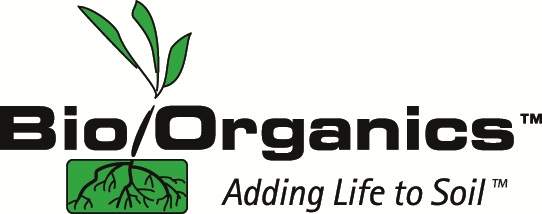In some ways like our political parties, there are a few loud extremists at both ends of agricultural procedures and many quieter degrees of different perspectives in between.
At one extreme, some growers approach organic methods with a near-religious fervor. Over at the other end of the spectrum are growers who would spray their crops with anything that promises a fast knock down of every bug in sight. It seems many people make the mistake of thinking that these polar opposites are the "organic" and "conventional" growers, just as in politics where the shouters on the far left and right are often seen as representing the opinions of their entire parties.
Many of the growers I speak to say the same thing - "I try to grow organically as much as I can." Usually this means that they are experimenting with compost, mulches, limited-tillage, and/or organic fertilizers, and are trying to avoid the most toxic pesticides. There seem to be relatively few who are still totally unconcerned about the longer-term health of their most valuable asset - the soil.
Even some USDA scientists are now attempting to promote the idea of restoring bio-life to croplands after decades of helping foster the exclusive use of soil chemistry and synthetic fertilizers. It's like a seed has sprouted, albeit only after salt buildups, soil compaction, water contamination, and other environmental problems have become a bit too obvious to ignore.
You can probably divide food growers into three groups - those who closely follow organic guidelines, those who use purely chemical methods, and a middle group that combines some elements of both. It is my impression that the latter group is quietly increasing, again as in politics where an ever-increasing number of voters are registering as Independents.
The use of soil biology is gaining ground (no pun intended) on chemistry-only growing. There is currently kind of a sorting-out process going on, after a few decades of chemical's dominance among both farmers and home gardeners.
"What works?" is always a key question, although "How much longer will this work?" may pop up more in the future as sustainability issues become more of a problem worldwide. I read that even China is becoming concerned about their over use of nitrogen fertilizers, and whether they are burning out vast areas of prime cropland. Hunger can be difficult to govern.
I predict that promoting beneficial soil organisms (mycorrhizal fungi, nitrogen-fixing bacteria, earthworms, etc.) will gradually become more routine, but also that chemistry will always have a place on farms and home gardens. As just two examples, gradual-release fertilizers (such as Osmocote) seem to be compatible with mycorrhizae and stricter human/wildlife health standards seem to be resulting in more responsible 'cides being marketed by the chemical companies (let's hope).
There's no need to feel that your choices are either to go beard-growing-organic or stubbornly refusing to use nothing but powerful chemicals. More growers every year are looking for a sensible middle ground (this time, pun intended) to produce great yields of healthy food crops. Some will lean more toward biological methods and some more toward soil chemistry, but both disciplines have something to offer growers. By all means, use what works - but please also think about what will work for decades to come, not just this growing season.
I'm sure common sense will prevail, at least in agriculture. Not so sure about politics.
Good growing, my friends,
Don Chapman
President, BioOrganics
